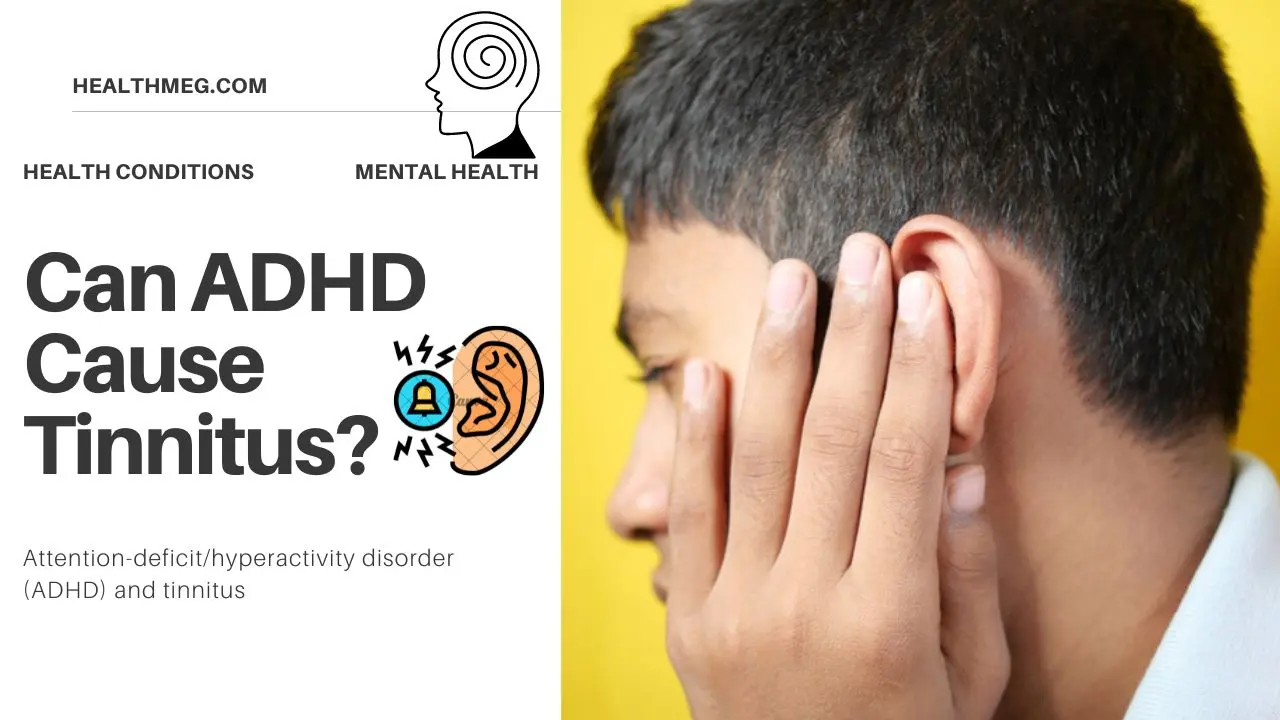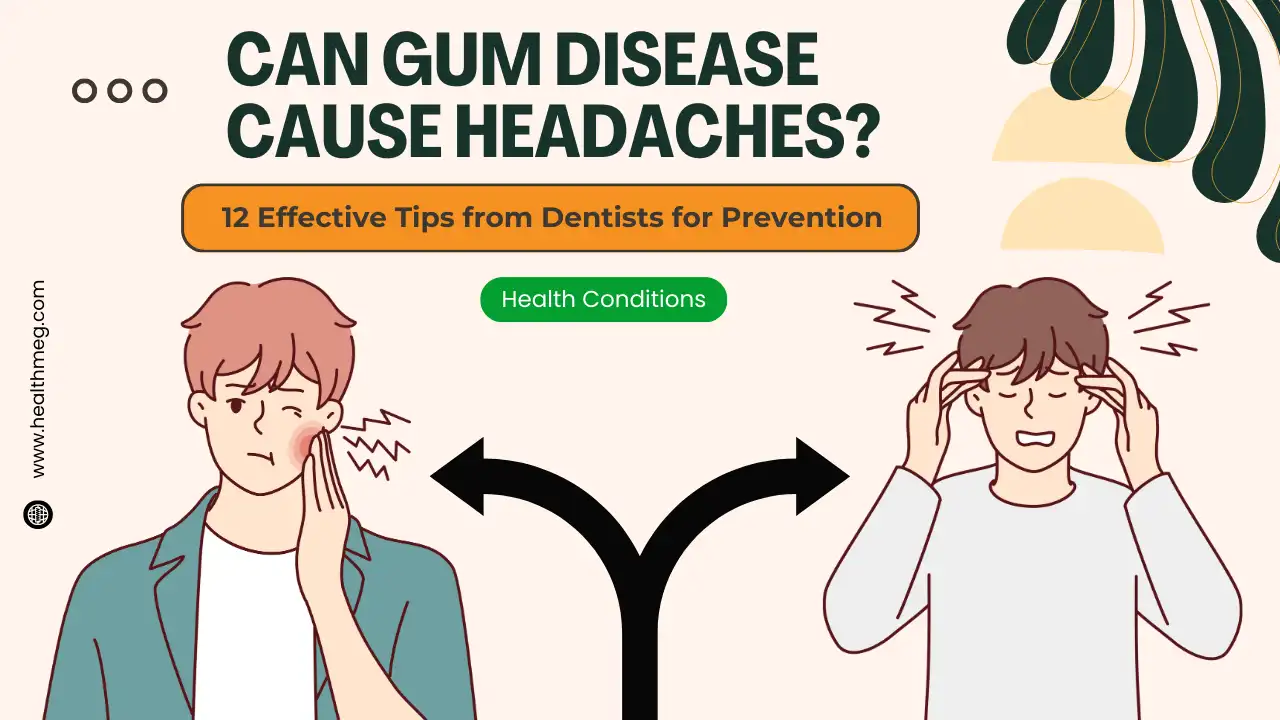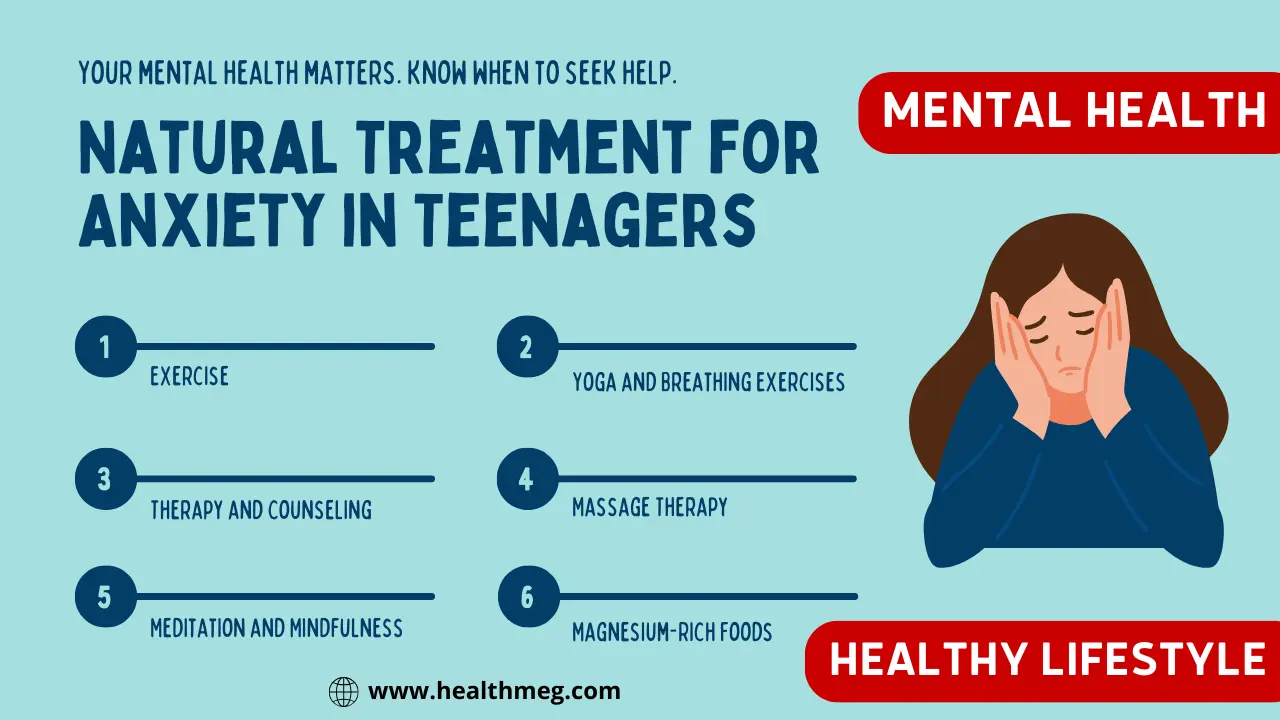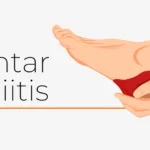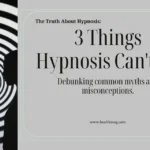Introduction
Attention-deficit/hyperactivity disorder (ADHD) and tinnitus—a condition characterized by the perception of noise or ringing in the ears—affect millions of people globally. ADHD is one of the most common neurodevelopmental disorders, while tinnitus is experienced at a rate of 10–15% in adults and about 32.0% in the elderly population.
Recently, research has uncovered a potential correlation between these two conditions. In this article, we’ll explore the latest scientific evidence regarding the neurological factors connecting ADHD and tinnitus. Using insightful case studies and expert advice, we’ll provide tips for managing the symptoms of both conditions.
Let’s check out this comprehensive guide about “Can ADHD Cause Tinnitus?“
Do read the People Also Ask (FAQs) about this topic.
Key Takeaways
- Yes, ADHD can cause tinnitus. Studies show people with ADHD have a 66% higher risk of tinnitus compared to the general population. The reasons likely involve common neurological underpinnings related to dopamine imbalance and differences in key brain regions that regulate attention and sound processing. Treating ADHD and minimizing associated sleep/stress issues helps manage tinnitus symptoms.
- Research shows a connection between ADHD and tinnitus, with higher rates of tinnitus in those with ADHD.
- Overlapping neurological factors like dopamine imbalance and differences in certain brain regions may underlie the link between the two conditions.
- Tinnitus symptoms can worsen ADHD distractibility, while ADHD-related sleep and stress issues can exacerbate tinnitus.
- Treatment strategies like cognitive behavioral therapy, sound therapy, and stress management can help manage both ADHD and tinnitus.
Understanding ADHD and Tinnitus
ADHD is a neurodevelopmental disorder characterized by persistent symptoms of inattention, hyperactivity, and impulsivity. Some common symptoms include:
- Difficulty paying attention and staying focused
- Excessive activity and restlessness
- Impatience and impulsive behaviour
- Disorganization and forgetfulness
Tinnitus is the perception of phantom noise or ringing in one or both ears. The sounds heard can range from buzzing and humming to hissing, roaring, or whistling noises. Tinnitus symptoms include:
- Ringing, buzzing, roaring, or humming in the ears
- Varying pitch and loudness of sounds
- Occasional or constant noise that won’t diminish
- Difficulty hearing, working, or sleeping due to noises
For many dealing with these troublesome symptoms, the big question is—what’s the connection?
The Neurological Aspect
Research now suggests ADHD and tinnitus may be linked via shared neurological underpinnings. Both conditions involve differences in key brain regions like the prefrontal cortex, limbic system, and various neurotransmitter networks.
Specifically, low levels of dopamine in the brain appear to be associated with inattentiveness in ADHD. Tinnitus has similarly been connected to the abnormal function of dopamine D2 and D3 receptors.
Imbalances in neurotransmitters like acetylcholine, serotonin, and glutamate may also contribute to both ADHD and tinnitus through their effects on focus, sound processing, and nerve cell communication .
The neurological parallels between ADHD and tinnitus provide one avenue for possibly explaining their co-occurrence. But what does the data say about the strength of their connection?
Exploring the Link Between ADHD and Tinnitus
Can ADHD Cause Tinnitus?
Recent studies have found a significantly higher prevalence of tinnitus among those with ADHD compared to the general public.
- A meta-analysis of over 5,000 ADHD patients determined they had a 66% higher risk of tinnitus versus non-ADHD groups.
- Up to 30% of adults with tinnitus also have ADHD—far exceeding the 5% prevalence in the overall population.
- One study of over 700 adults found tinnitus rates of 25% in those with ADHD versus 12% in those without.
The underlying mechanisms behind the ADHD-tinnitus relationship are still under investigation. However, researchers suggest that increased stress, sleep disturbances, and sensory issues associated with ADHD may be contributing factors.
ADHD medications like stimulants do not appear to be a primary cause, though they may potentially worsen existing tinnitus in certain cases. Overall, substantial evidence confirms a heightened co-occurrence of tinnitus with ADHD diagnoses.
Treating Tinnitus in ADHD
If you have both ADHD and troubling tinnitus, getting treatment for your ADHD is an important first step.
Managing ADHD through medications, therapy, coping strategies and lifestyle changes can help lower associated stress and sleep difficulties that may be exacerbating tinnitus.
Beyond treating the underlying ADHD, options for directly managing tinnitus include:
- Cognitive behavioural therapy (CBT) – CBT focuses on changing negative thought patterns around tinnitus. It can significantly improve the ability to cope with symptoms.
- Tinnitus retraining therapy (TRT) – TRT uses counselling and sound therapy to help retrain your brain’s perception of tinnitus. It aims to make you less aware of the condition.
- Medications – No drug can fully eliminate tinnitus, but some antidepressants, anti-anxiety drugs, and other medications may provide modest relief for some patients.
- Sound therapy – Soothing background sounds can distract from tinnitus and improve sleep. White noise machines, nature sounds, or soft music can help mask ringing.
- Stress management – Reducing stress through relaxation techniques like yoga, meditation, massage, and deep breathing can help lessen tinnitus flare-ups.
Seeing an audiologist or ear, nose, and throat specialist experienced in tinnitus treatment can help determine the best management plan. Be sure to discuss all medications and supplements with your doctor, as some can worsen tinnitus.
Personal Experiences and Case Studies
Personal Experiences:
- An individual shared on a public forum that they began experiencing difficulties with concentration around the same time they started noticing tinnitus. They wondered if there might be a connection between ADHD and tinnitus.
- Another forum participant revealed that they had been dealing with ADD and intermittent tinnitus for several decades. They found that their focus improved and their tinnitus seemed to lessen when they used cannabis.
Case Studies:
- A case study featured in a reputable publication, Psychiatric Times, detailed the experiences of a 55-year-old man with a complex developmental history, including global developmental delay, traumatic brain injury at a young age, and dyslexia diagnosed in adolescence. This individual suffered from bilateral tinnitus and high-frequency sensorineural hearing loss. His tinnitus was found to be exacerbated by a lack of restorative sleep due to sleep apnea, a split-shift work schedule, and a history of alcohol use.
Tinnitus often exacerbates ADHD symptoms like distractibility, while ADHD-associated anxiety and sleep issues worsen tinnitus.
Expert Advice and Management Strategies
If you’re experiencing ADHD and bothersome tinnitus, don’t lose hope. Getting an accurate diagnosis and tailored treatment plan is crucial. Here are some tips from audiology experts:
- See both an audiologist and psychiatrist to assess your symptoms in-depth. Having both specialists collaborate ensures all facets of ADHD and tinnitus are addressed.
- Work to identify potential triggers that worsen your tinnitus, like lack of sleep, high stress, noise exposure, or certain medications. Adjusting these factors can minimize tinnitus flare-ups.
- Treat any hearing loss, wax buildup, or ear disorders that could be making tinnitus symptoms more noticeable.
- Consider cognitive behavioural therapy (CBT) tailored to ADHD and tinnitus to change negative thought patterns around your symptoms.
- Ask your doctor about possible ADHD medications that are less likely to aggravate tinnitus, or treat ADHD using non-drug approaches .
- Use sound therapy, relaxation techniques, and mental exercises specifically designed to make tinnitus less bothersome. Don’t lose hope–consistency is key.
Trying different combinations of lifestyle changes, therapy approaches, sound therapy, and medications allows you to find the best management plan for your individual needs.
Conclusion
In summary, burgeoning research indicates ADHD and tinnitus may indeed be closely connected. Overlapping neurological underpinnings involving dopamine, differences in key brain regions, and associated factors like sleep and stress likely all play a role.
If you are among the many dealing with both ADHD and tinnitus, take comfort in knowing you aren’t alone—and that effective treatments are available. Reach out to healthcare professionals who understand the link between these conditions. Consistently implementing tailored management strategies can help you successfully handle symptoms over the long term.
People Also Ask (FAQs)
Q: Is there a connection between ADHD and tinnitus?
A: Research has found higher rates of tinnitus among those with ADHD compared to the general population. The reasons for the connection are still being studied but may involve overlapping brain changes.
Q: Can the distractibility of ADHD make tinnitus symptoms worse?
A: Yes, poor attention control common in ADHD may prevent effectively tuning out tinnitus noise. This could make the ringing, buzzing or hissing sound more intrusive.
Q: Can the medications used to treat ADHD cause tinnitus as a side effect?
A: Some ADHD medications like Ritalin, Adderall and Concerta are stimulants that may potentially contribute to tinnitus in a small percentage of users. However, discontinuing the medication often resolves the symptoms.
Q: How can ADHD be managed to help minimize tinnitus symptoms?
A: Using ADHD coping skills like external noise cancellation, relaxation techniques, cognitive behavioural therapy and biofeedback may help both conditions. Prioritizing sleep and stress reduction is also important.
Q: If my child has ADHD, will they be more likely to develop tinnitus later in life?
A: Having ADHD may increase tinnitus risk to some degree according to studies. But most kids with combined ADHD and tinnitus conditions outgrow the tinnitus as they get older whether or not the ADHD persists.
Q: Does treatment for ADHD also help to reduce tinnitus?
A: While more research is still needed, some ADHD medications may dually minimize distractibility and tinnitus impacts. There are also non-drug options providing symptom relief for both.
